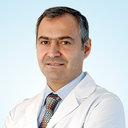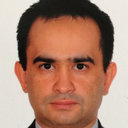Hydroxyproline levels in nasal polyps.
מילות מפתח
תַקצִיר
The aim of this study was to evaluate hydroxyproline levels in nasal specimens from patients with nasal polyps, and to examine hydroxyproline levels after nasal steroid spray and oral steroid treatments. This study was performed on 41 patients. The subjects were divided into four groups: no medication group (group A, n 11), oral methylprednisolone group (group B, n 8), topical steroid spray group (group C, n 8) and control group (group D, n 14). Nasal polyp samples were collected endoscopically. Healthy subjects were studied as a control group, and their nasal samples were taken during turbine reduction surgery. All samples were analyzed using the immunocytochemistry method. Hydroxyproline levels were investigated and compared with the control group. Mean hydroxyproline levels in groups A-D were 98.48, 24.20, 8.97 and 4.52, respectively. The hydroxyproline levels were significantly higher in group A compared with that of group D. The treatment that revealed significant decreases in hydroxyproline levels was group C. Although there was also a noticeable reduction in group B, there were no statistically significant differences between group B and group A. Our study revealed a significant correlation between nasal polyp and hydroxyproline levels. The hydroxyproline levels were significantly higher in nasal polyps. Both oral and topical steroid treatments decrease hydroxyproline levels in nasal polyps. Thus, in theory, steroid treatment can directly decrease hydroxyproline levels by inhibiting proline hydroxylase and indirectly by lowering the inflammatory process.



